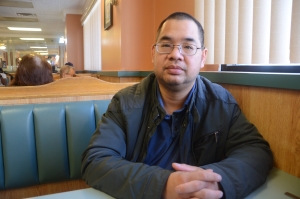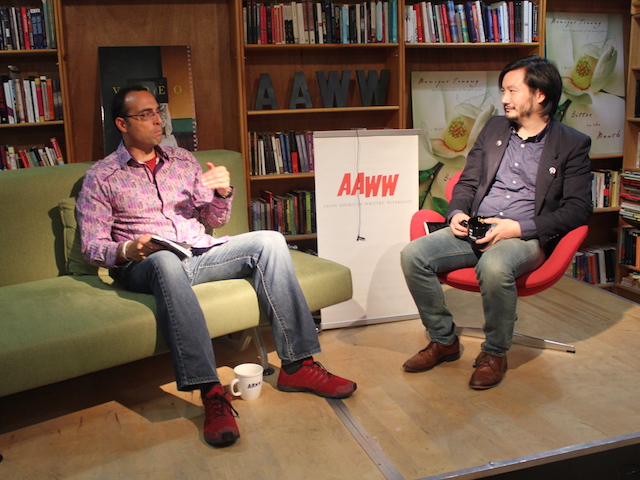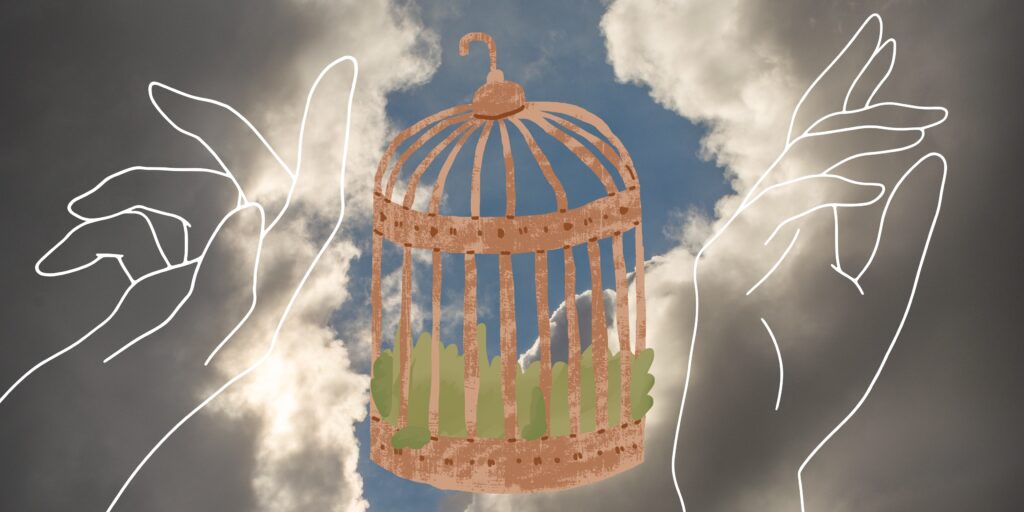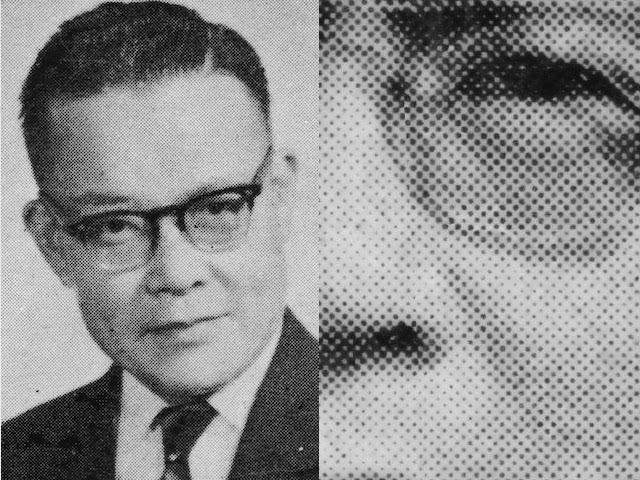One moment he was ministering to Muslim prisoners at Guantanamo. The next, he was arrested, detained and threatened with execution.

July 14, 2017
As a chaplain at Guantanamo ministering to Muslim detainees, James Yee’s job was to counsel and listen to the detainees. Many of the prisoners told him about acts of torture committed against prisoners, who were detained on suspicion of being members of terrorist organizations.
When he reported these abuses, Yee was accused of spying and aiding the suspected Taliban and Al-Qaeda prisoners. He was arrested, detained and court-martialed. In a sit-down interview with Open City Fellow April Xu, Chaplain Yee said he believes that he was accused of spying because he reported cases of human rights abuses against the prisoners, and because he was a Muslim and a Chinese.
This is his story.
“I was born in Naperville, Illinois, a suburb city of Chicago, but I grew up in Springfield, New Jersey. My parents moved here in the United States from Guangzhou, China when I was two years old. I was raised a Christian, but in 1991, I converted to Islam.
In 1986, I went to West Point and joined the Army after my graduation. It is a famous school with a very good reputation. I went into athletics, into wrestling. At Jonathan Dayton High School in New Jersey, I was a wrestling champion, and I guess that helped me get into West Point.
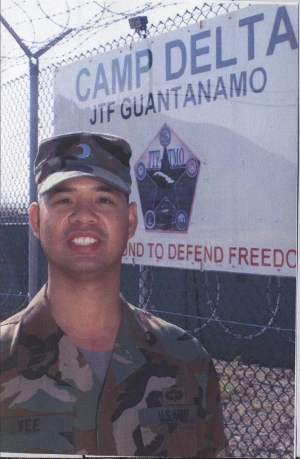
Before I became a Muslim in 1991, my initial plan after graduation was to go into business. I studied management and earned my bachelor’s degree at West Point. I was a lieutenant in the U.S. Army when I converted to Islam. Six months after my conversion, they (the army) sent me to Saudi Arabia for the first Gulf War.
After the war, they sent me to Germany where our station was. In Saudi Arabia and Germany, I was working with Patriot Missiles.
Diversity –this is the reason that got me interested in Islam. There is diversity within the monotheistic religions such as Islam, Christianity and Judaism but Islam has more diversities, especially ethnic diversity. When you go to Mecca, you see people from all over the world, people of different colors.
Being an Asian American, I began to value diversity when I was becoming a young adult. As my interest in Islam grew, I also realized that diversity not only encompasses ethnic and national differences, but religious differences as well. I also learned that the concept of diversity is enshrined in the U.S. Constitution and Bill of Rights. Being both an ethnic and religious minority certainly shaped my views on diversity, tolerance and mutual understanding.
The first time I went to Mecca was when the Army sent me to Saudi Arabia in late 1991. It was after that trip that I decided to become a chaplain in the army. I realized that there wasn’t a single Muslim chaplain serving in the U.S. Army. It was clear to me that that this was needed to be addressed. The trip to Mecca was very inspiring, and it led me toward a path where I wanted to make a difference, yet continue to serve in the U.S. military.
So I left the army in 1993 because I needed to study to become a chaplain. In 1995, I went to Syria to study Arabic and Islam. I spent almost five years there. In the first two years, I was a full-time student. Then I started to teach English in Syria.
“The military said that these things were done because we are trying to get information. But most of these, the things that they did, were war crimes. So I had to report it.”
In 2000, I came back to the U.S. and started working as an Army chaplain in January the following year, 2001, right before 9/11. The army sent me to Fort Louis in Washington State. It was my first assignment as a chaplain. And then 9/11 happened. After 9/11, they asked me to teach many troops about Islam, because they were preparing to send these soldiers to Afghanistan and Iraq.
Then the War on Terror began, and U.S. military opened a prison in Cuba – inside the Guantanamo Bay Naval Station. All the prisoners there were Muslims — around 660 people. When it started, there were about a total of 779 prisoners at one time; when I was there, there were approximately 660.

The army sent me there as a prison chaplain. I was the only Muslim chaplain there at that time. There were two before me, but they were there only for about two months, but I was there for almost a year. I guess the reason why I stayed there the longest among chaplains is because I became popular among the troops. And that is because after I started teaching the troops about Islam, the soldiers started to know more about who I was, and that’s why they wanted me to be there.
My job was to protect the religious rights of all the prisoners. I had to make sure they can pray five times a day. I was also there to give advice to the prisoners, things like that. So when the prisoners had issues, and they need someone to talk to, I can listen to them. That’s when they told me about how they were being tortured. They got beaten up. They were subjected to sleep deprivation. There were also reports of sexual humiliation, even from female interrogators.
The military said that these things were done because we are trying to get information. But most of these, the things that they did, were war crimes. So I had to report it. As an officer, it is my duty and my obligation to report these cases.
“I was afraid that they would put me in Guantanamo or in a secret hole somewhere, and nobody would ever know. That’s what I was afraid of.”
I wrote reports and sent them to the Commander, Col. Adolph McQueen. He reported to General Geoffrey Miller (commander of the Guantanamo detention facility), and then to other people over at the intelligence section. They didn’t like me reporting about the torture. So they arrested me and put me into jail in September, 2003. They arrested me secretly.
I was thrown in jail for 76 days in a prison just like Guantanamo in South Carolina. I was held in solitary confinement and subjected to the same sensory deprivation techniques that were being used against the prisoners in Cuba that I had been ministering to. I have never imagined that this would happen to me. When I got arrested, I was thinking of 9/11; I was afraid that they would put me in Guantanamo or in a secret hole somewhere, and nobody would ever know. That’s what I was afraid of.

They put information out to the media that I was a terrorist, that I was a spy. They tried to bring me to a court martial. But of course there was no evidence. They eventually had to drop all the charges. With my record wiped clean, I was reinstated to full duty at Fort Lewis, Washington.
The Guardian wrote an article about me, with the headline “He Is Not Guilty, He Is Not Innocent.” They (the military) didn’t put me on trial, and they dropped the charges. That means I am not guilty, but the government never said ‘oh, he is innocent.’ They never gave me an apology. So the government was still suggesting that I was still guilty.
After the charges were dropped, with my record wiped clean, I was reinstated to full duty at Fort Lewis in Washington state. But I decided to quit the army in 2005. We call it ‘resign the commission.’ I resigned from the U.S. Army and received an Honorable Discharge on January 7, 2005. Upon separation, I was awarded with a second Army Commendation medal for “exceptionally meritorious service.”
I don’t like it that the government said ‘oh, he is still guilty,’ because I am guilty in this. I decided to leave the army so I can speak out. In the military, you cannot speak out. That’s why I wrote the book For God and Country: Faith and Patriotism Under Fire. I had to tell my own story, to clear my name.
Almost everyone who listens to my story is on my side, except for the right-wing extremists. Even those in government, in Congress, want to help me – like New Jersey Senator (Frank) Lautenberg, Massachusetts Senator (Ted) Kennedy, Michigan Senator (Carl) Levin, California Congressman Mike Honda and Washington Congressman Adam Smith – they want to support me and help me clear my name. I was put in jail wrongly, falsely accused.
“Everybody has a responsibility to speak out, not just me. Martin Luther King said our lives begin to end the day we become silent about things that matter.”
I think the reason why they arrested, detained and charged me is that they don’t like me. I am a Muslim, so they say ‘he is terrorist.’ They accused me of being a terrorist and spying for the enemies. But they also said ‘spying’ because I am Chinese, and they like to call Chinese people spies.
There have been a lot of Chinese people in America who work for the U.S. government whom they accused of spying, like Wen Ho Lee (a Taiwanese-American scientist who worked for the University of California) and more recently, Sherry Chen (a U.S. federal government worker) and Xiaoxing Xi (chair of the Physics Department at Temple University). They always tried to make Chinese people out to be spies, and now they’re trying to make Muslim people out to be terrorists.
So they called us spies and they called us terrorists when we don’t do what the government is telling us to do, when we criticize.
So I started a new life after I left the military. From 2005 to 2008, I was speaking out against torture and against Guantanamo. I was telling my story and trying to clear my name. I went to many universities and colleges all over the country, I was even invited to speak three different times at Oxford University in the UK. I also spoke about human rights in other places like Turkey, Germany, and India.

But we have to remember that at the time, President Bush said that the laws that didn’t apply to Guantanamo, that there were no laws in Guantanamo. There was an international law for wars, and it is called Geneva Convention. But President Bush said they didn’t apply, so that meant that you could do whatever you want to prisoners, and not be held accountable, which is not true. That’s why prisoners got tortured.
After all these happened, I felt disappointed with the leadership of the government at that time, under President Bush and under Defense Secretary Donald Rumsfeld and General Miller. But I still have confidence in this country. I am an American and many people in America support me, even the people in Congress that I mentioned.
In 2008, Barack Obama ran for President. He said he was going to close Guantanamo. When I found out he was a lawyer from Harvard, and that he was an expert on the U.S. Constitution, I was hopeful that if he was elected president, he would close Guantanamo. So I helped him get elected. I did campaign for him in Washington State and became a delegate. The delegate goes to the national convention to vote for the party candidate.
That year, the Democratic nomination was a tough race between Obama and Hilary (Clinton). I was on Obama’s side, and he won. The second day after he was elected, he announced that he was going to close Guantanamo, so I was very happy.
“I lost my career and my job when I stood up for what is right. I sacrificed my life for what I believe was right.”
But Obama never closed Guantanamo. So I became disappointed. Guantanamo remained open, with 41 prisoners still there, And now, President Trump said he wants to put more prisoners there. After Trump was elected, there have been a lot of attacks on Muslims all over the country. In his anti-immigrants talks, he specifically talks about Muslims and Mexicans. It is a big sign of danger, very dangerous. And he even attacked Muslims who served in the military, like when he attacked the father of Captain Humayun Khan, who died in Iraq serving in the Army.
He is against Muslims who have served this country. This shows his bigotry. Trump is banning Muslims. He attacked Syria in April because he said it was for the women and children who died in the chemical attacks, but he blocks the same women and children who fled their country and came to the U.S. for safety. We cannot support his actions.

Obama was trying to improve the relationship with Muslims in American. He refused to say Islamic terrorism. He referred to “extremism,” refusing to label it “Islamic.” Now Trump doesn’t do that. The policy towards Muslim Americans was changing, but now that he is out of office, it is going back to what it was under (President) Bush.
Everybody has a responsibility to speak out, not just me. Martin Luther King said our lives begin to end the day we become silent about things that matter. He said that we cannot be silent especially when there is injustice. People have to work to make changes, but if people stay silent, things won’t change. It only gets worse, for Muslims and everyone else.
I lost my career and my job when I stood up for what is right. I sacrificed my life for what I believe was right.
Now, I am suffering from PTSD, from the trauma of being falsely accused, being put in military confinement, and being threatened with death penalty. This affects me today. The symptoms of PTSD include anger, depression, anxiety, and sleep disorder. I have to get mental health treatment at the VA hospital. And I have to do things like art and poetry as part of my therapy.
My wife and I got divorced twice – in 2006 and 2009 – because of too much stress. We remarried after our first divorce in 2006, then filed for divorce again in 2009. In 2006, after I got out of the Army I spoke out publicly, and my wife at that time couldn’t handle it.
Now I am unemployed and focusing on my daughter’s education. My daughter is 17 now, and she is getting ready for college soon. She lives with her mother in New Jersey. My family is trying to put everything aside to rebuild our lives, but they are still affected because my ex-wife is Palestinian and was born in Syria, so her family was in Syria.
A lot of what’s happening today under Trump affects her and her family. My daughter’s grandmother, uncle and cousins are in Syria. Some of her relatives are refugees in Europe. They have no plans of coming to the U.S. because of Trump’s immigration policies.
My arrest changed my whole life. If they haven’t done that to me, I would probably still be in the Army. Those charges destroyed my military career, but it gave me the courage to speak out, because if you are in the military, you cannot speak out.
After what happened, I was forced to speak out. I could have stayed silent, like inside a clam shell. But things like Guantanamo and human rights are too big of an issue to stay silent about. I’d be ready to speak out if and when Trump puts more prisoners in Guantanamo. That’s my short-term plan.
What they did to me was wrong. They should have admitted they were wrong and they should have apologized, but they never did that. The government doesn’t usually apologize. If you speak out against the President of the United States because he is doing something wrong, that means you really love your country because you want your country to be better. That’s the true definition of ‘patriotism.’
Patriotism is not blindly following whatever the President does or says.”

